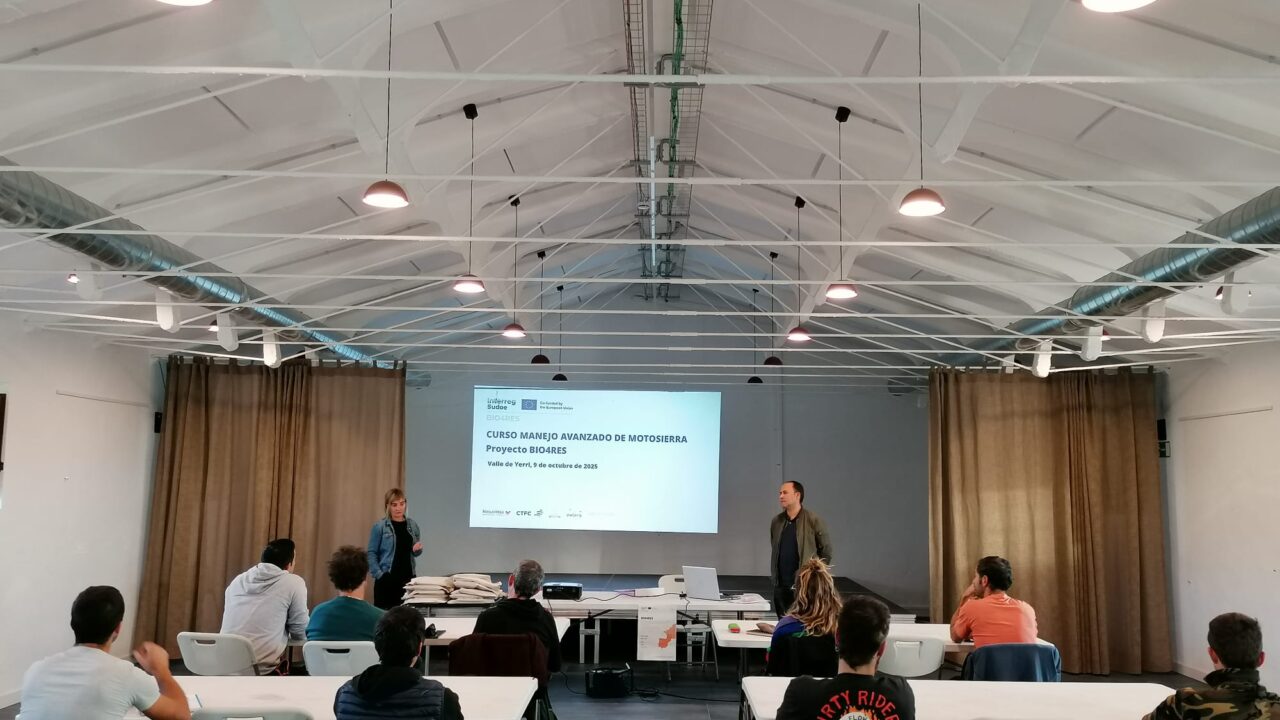The BIO4RES Project, as part of its pilot project 4, led by Nasuvinsa, is promoting a training initiative aimed at training forestry crews and personnel specialised in biomass extraction and sustainable forest management.
The training, consisting of 72 teaching hours, will take place from 9 to 24 October in the Yerri/Deierri Valley and aims to provide participants with advanced knowledge in chainsaw handling, sustainable forest resource management and fire prevention.
The theoretical classes are held at the Ostatu in Arizala, a space provided by the Valle de Yerri / Deierri Town Council, an entity associated with the BIO4RES project. The practical sessions are held at the Zunbeltz farm, owned by the Government of Navarre and provided to the Andia Association of Municipalities to house the Zunbeltz agricultural test space.
The training is provided by Arpana Formación Forestal, in collaboration with Basartea and ADEMAN, and organised by Nasuvinsa, with the support of the Valle de Yerri / Deierri Town Council, the Andia Association of Municipalities and ADEMAN. The initiative is co-financed by the Interreg Sudoe programme (through the BIO4RES Project) and by the Department of Rural Development and Environment of the Government of Navarre, and is free of charge for students.
A total of 10 students of different ages are participating, with the aim of training new qualified personnel in rural areas and promoting their entry into the forestry sector, a field that currently faces a shortage of professionals specialised in the advanced use of chainsaws and biomass extraction.
The training includes content directly linked to the principles and values of the BIO4RES Project, such as ecology and sustainable forest management, fire prevention, biomass recovery, forest resilience and the compatibility of ecosystem, economic and social services.
Students will also learn about the results of the various pilot projects developed within the framework of BIO4RES in a specific session on the transfer of results, which will enable them to link practical training with the progress of the project in Navarre and the other participating territories.
Unlike standard introductory courses on the use of chainsaws, this training has an innovative component: it combines advanced technical training with a comprehensive view of the territory and sustainability, promoting professional autonomy, responsible forest management and the reduction of fire risks.
The course also aims to consolidate multilateral governance among the different actors in the forestry sector —regional administration, local entities, public companies, forestry companies and training centres— so that this collaboration lays the foundations for future editions and consolidates a permanent training network in the field of forestry and the rural bioeconomy.

